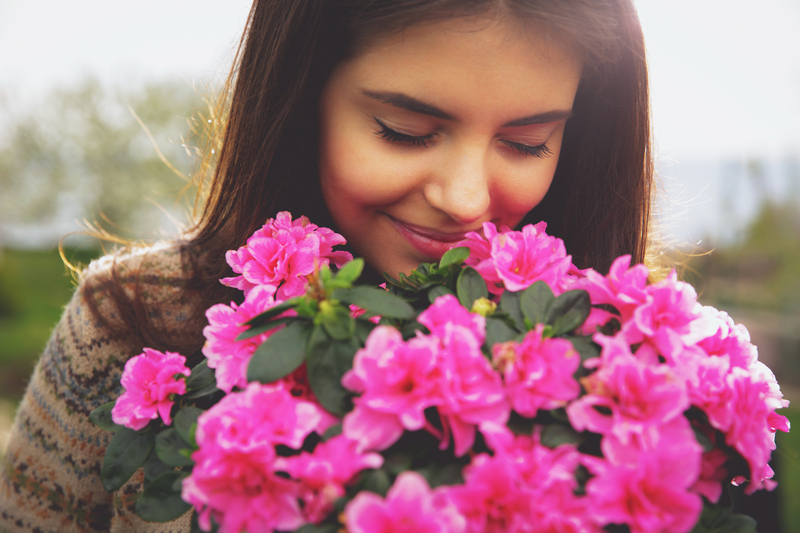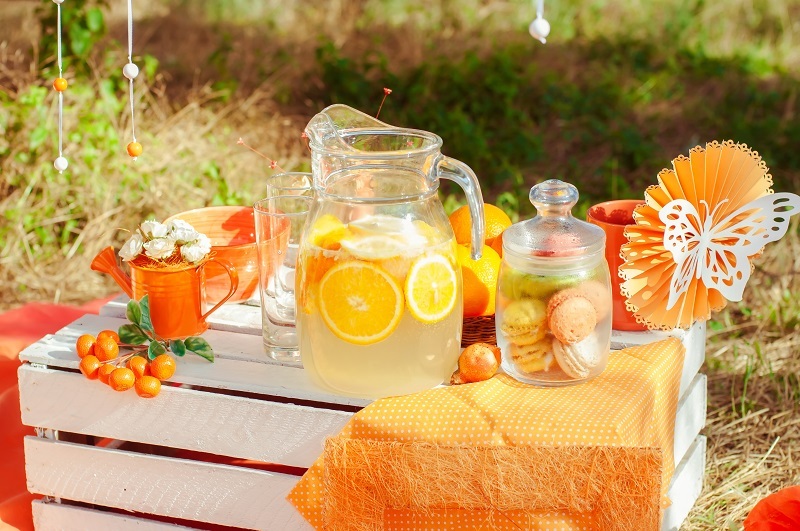Learn the Art of Keeping Your Flowers Fresh and Beautiful
Posted on 26/08/2025
Learn the Art of Keeping Your Flowers Fresh and Beautiful
There's nothing quite like the sight and scent of a stunning bouquet gracing your home, illuminating a room with color and life. Whether you've received an elegant arrangement for a special occasion, purchased a bouquet to brighten your space, or picked wildflowers from your own garden, knowing how to keep flowers fresh and beautiful can extend their beauty and vibrancy for days or even weeks. Welcome to your comprehensive guide--discover the secrets florists and horticulturists use to maintain fresh flowers and learn practical tips for keeping your blooms lively for as long as possible!

Why Proper Flower Care Matters
Flowers are living organisms, and once they're cut from the plant, their life cycle shortens significantly. Without roots to absorb water and nutrients, cut flowers rely on us to provide them with the best conditions for lasting freshness. Understanding the factors that affect flower longevity is the first step to becoming an expert in floral preservation.
- Extend the enjoyment of their natural beauty
- Create a welcoming and beautiful environment
- Honor the sentiment behind gifted or grown flowers
- Reduce waste by making flowers last longer
With just a little knowledge and effort, you can easily keep your flowers looking fresh and vibrant for longer. Read on for actionable techniques and the best-kept secrets of the floral industry!
Prepare to Keep Flowers Fresh: The Essentials
1. Choose Healthy Flowers
Whether buying from a florist or cutting from your garden, start with the healthiest, freshest flowers possible:
- Look for firm, upright stems
- Avoid wilted or brown-edged petals
- Check green, healthy foliage without sliminess or yellow spots
- Choose buds that are just beginning to open, not fully in bloom
2. Gather Your Tools
Having the right tools helps you maximize the lifespan of your flowers. Be prepared with:
- A clean, sharp pair of scissors or floral snips
- Spotless vases or containers
- Fresh, room-temperature water
- Optional: flower food, clear floral preservative, or homemade alternatives
Step-by-Step Guide to Keeping Flowers Fresh and Beautiful
1. Re-Cut the Stems
Once home with your bouquet, the very first step is to trim the ends of each stem. Flowers often seal or dry out at the cut ends, blocking water uptake. To give your bouquet the best start:
- Use sharp, clean scissors or floral shears
- Cut stems at a 45-degree angle under running water or in a bowl of water to prevent air bubbles
- Remove about 1 to 2 inches from each stem
- Repeat every 2-3 days for ongoing freshness
2. Remove Foliage Below Water Line
Leaves that sit underwater quickly decay, providing a breeding ground for bacteria. Bacteria, in turn, clog stem pores and reduce water uptake, causing premature wilting.
- Strip all leaves from the stem area that will be submerged
- Remove any damaged or slimy foliage from the entire stem
3. Use a Clean Vase
Bacteria are the enemy of fresh flowers. Always scrub your vase thoroughly with hot soapy water and rinse well before arranging your bouquet.
- Sanitation is key to prolonging flower life
- Rinse with a diluted bleach solution for extra protection if desired
4. Add Water and Flower Food
Clean, fresh water is critical. Specialty flower food powder contains nutrients and antibacterial agents to boost longevity, but you can also make your own solution:
- Fill the vase with lukewarm (not hot!) water
- Add commercial flower food following packet instructions
OR - DIY homemade flower food: 1 quart water + 2 tbsp lemon or lime juice + 1 tbsp sugar + 1/2 tsp household bleach
Change water and replenish food every 2-3 days for maximum effect!
5. Optimal Flower Arrangement Placement
Location is everything for keeping arrangements beautiful and fresh longer:
- Keep out of direct sunlight and away from heating/cooling vents
- Avoid bright windowsills or appliances that radiate heat
- Do not place near ripening fruits (they release ethylene gas, which speeds up aging in flowers!)
6. Re-Cut the Stems Regularly
Every few days, take time to remove the bouquet, trim about 1/2 inch from the base of each stem, discard wilted flowers, and refill the vase with clean water and fresh preservative. This simple ritual will dramatically extend the beauty of your flowers.
Insider Tips for Extending the Freshness of Your Flowers
Use Cool Temperatures
Feeling adventurous? Professional florists often store flowers in coolers at night. At home, you can place your bouquet in a cool, draft-free room or even briefly in the refrigerator overnight (—just not next to fruit!). This slows the aging process and helps keep blooms perky.
Remove Spent Flowers Promptly
Wilted blooms not only look sad--they can spread bacteria and hasten the decline of your bouquet. As soon as a flower starts to droop or discolor, remove it from the vase to protect the rest.
Avoid Overcrowding
Packing too many flowers into a single vase restricts breathing room and prevents water from reaching every stem. Choose the appropriate vase height and size for the number of flowers you have--your arrangement (and each individual bloom) will last fresher, longer, and look more beautiful as a result.
Consider Flower Variety
Some flowers simply last longer than others once cut. Here are a few famously long-lasting flowers you can mix in for especially enduring arrangements:
- Alstroemeria (Peruvian Lily)
- Carnations
- Chrysanthemums
- Dahlias
- Orchids
- Sunflowers
- Lisianthus
Others, like tulips, daffodils, and peonies, are more delicate and require extra care. Mix and match for the perfect visual and longevity balance!
Bonus Flower Care Hacks
- Add a copper penny to the vase--some claim it inhibits bacteria
- Drop in a crushed aspirin or a dash of vodka to discourage bacterial growth
- Change the water even more often in hot or humid climates
- Spritz delicate petals with cool water--but never over-soak heads and foliage
Myth-Busting: What NOT to Do for Fresh Flowers
There are plenty of old wives' tales about keeping flowers fresh, but not all advice stands up to science. Here's what to avoid:
- Don't use boiling hot or ice-cold water; both can shock stems
- Avoid overcrowding: packed flowers wilt faster
- Never use metal containers that might corrode or react with water/flower food
- Don't forget to remove dying blooms--they speed up decay!
- Don't skip regular stem re-trimming and water changes
The Science Behind Fresh Flowers
Water is Life
Stems absorb water that travels up to the petals and leaves through capillary action. Dehydrated flowers wilt because there's not enough water pressure in their cells to keep them upright. By cutting stems at an angle, we increase the surface area for water uptake. Keeping water clean and bacteria-free reduces blockages in these tiny capillaries--allowing flowers to stay fresh and beautiful longer.
Bacteria: The Silent Enemy
Bacteria both in water and on stems multiply quickly, forming biofilms that physically block water absorption and create toxins that harm flowers from within. Changing water, cleaning vases, and using floral preservatives keeps stem pores open and your bouquet fresh.
Common Flower Care Mistakes (and How to Fix Them!)
- Using dull scissors - Can crush stems, reducing water uptake.
Solution: Use clean, sharp tools only. - Skipping regular water changes - Causes murky, smelly water and sickly flowers.
Solution: Change water and clean vase every couple of days. - Leaving leaves below waterline - Promotes rapid decay and bacteria growth.
Solution: Always strip underwater foliage! - Ignoring room temperature - Flowers wilt faster in hot rooms or direct sunlight.
Solution: Arrange flowers in a cool, dim location.
Specialized Tips for Iconic Flowers
Each flower variety benefits from unique care considerations:
- Roses: Remove outer "guard" petals for a pristine look and always re-cut stems under water
- Tulips: Drop a pin through the stem (just below the flower) to keep them standing tall
- Hydrangeas: Dip stem ends in boiling water for 30 seconds, then place in cool water
- Orchids: Mist lightly and avoid chilling; keep out of direct sun
- Daffodils: Allow cut stems to release mucus in a separate vase for 12 hours before adding to arrangements

How to Keep Dry Flowers Beautiful
Interested in preserving your cherished blooms as a keepsake? Many flowers dry gracefully if you treat them right:
- Air drying: Bundle stems loosely and hang upside-down in a cool, dark, ventilated spot
- Silica gel drying or pressing: For delicate blooms and keepsakes
- Spritz lightly with hairspray to minimize shedding
Handle dry arrangements gently, and keep out of direct sunlight and away from moisture--your dried flowers will stay beautiful for years!
Conclusion: Enjoy Flowers at Their Finest
Mastering the art of keeping flowers fresh and beautiful is simple when you follow tried-and-true advice: start with healthy blooms, use clean tools and water, trim stems properly, and stay vigilant about maintenance. Give your arrangements the best possible environment and they'll reward you with days or even weeks of color, fragrance, and joy!
Ready to keep your flowers fresh and vibrant every time? Put these steps into action and transform every bouquet into a lasting showpiece. With each arrangement you nurture, you'll find more reasons to fill your life with the natural beauty and uplifting spirit of flowers!
Celebrate each day with flowers that look as beautiful as the moment they arrived--with just a little care, you can make every bouquet last.
Latest Posts
Learn the Art of Keeping Your Flowers Fresh and Beautiful
Birthday Cheer with Beautiful Flowers
Office Decor Magic: Transform with Low-Care Plants






